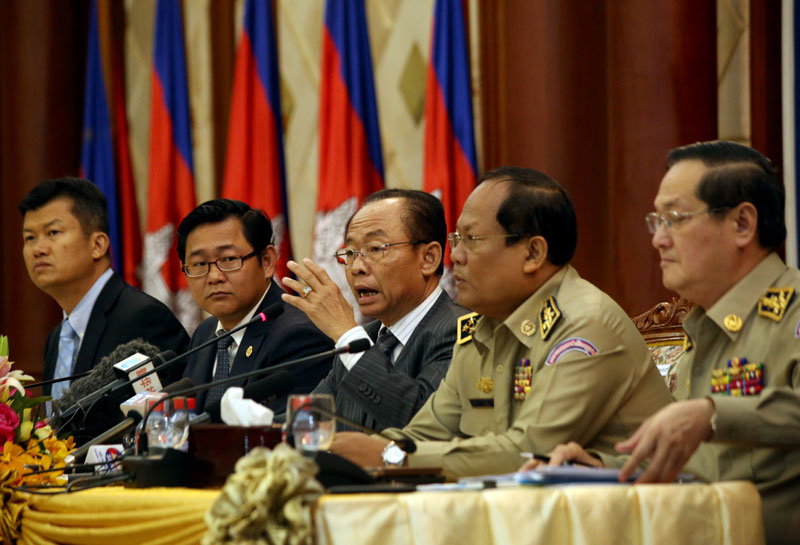A senior Foreign Ministry official on Monday said Cambodia’s controversial handling of Montagnard asylum seekers from Vietnam more than a decade ago gave the government the necessary credentials to resettle refugees it will soon take off Australia’s hands as part of a deal signed Friday.
The official also said heavy traffic in Phnom Penh would make the capital inhospitable to the soon-to-arrive refugees, who will be permanently located outside the capital.

Cambodia and Australia on Friday signed off on a deal that will see Cambodia resettle an unknown number of asylum seekers Australia is currently holding on the South Pacific island nation of Nauru. Negotiated in complete secrecy, the plan has been roundly rebuked by rights groups and opposition lawmakers in both countries, who accuse Australia of shirking its responsibilities by sending the refugees to one of the poorest and most corrupt countries in the world.
Breaking his silence on the deal since negotiations started in February, Foreign Affairs Secretary of State Long Visalo, who has led Cambodia in the talks with Australia, said the country had sufficient experience to take in the new refugees.
“The work of receiving the refugees is not new for Cambodia. It is something we have done before. For example, we received the Montagnards,” Mr. Visalo said at a press conference at the Ministry of Interior.
Cambodia has been widely criticized for its deportation of Montagnards back to Vietnam over several years during the previous decade. Members of the highland minority group, who accuse the Vietnamese government of stealing their ancestral land, are believed to have been jailed and sentenced to forced labor upon their return.
As part of Cambodia’s deal with Australia, Mr. Visalo said, the refugees from Nauru will be permanently settled outside of Phnom Penh once they learn basic Khmer and pass a health check.
Heavy traffic in Phnom Penh, he said, will make it necessary to move them out of the capital.
“Phnom Penh has traffic jams, so they cannot live here,” he said. “And they may need land to do farming. There is more land outside of the city than inside.”
Cambodia is currently home to about 70 refugees, most of whom live on the outskirts of Phnom Penh.
Mr. Visalo also said the first group of refugees could arrive in Cambodia from Nauru—on a strictly voluntary basis—by the end of the year.
Seemingly exasperated by persistent questions about where in Cambodia the refugees will be settled, Mr. Visalo insisted that no sites had been selected yet. He quipped that immigration chief General Sok Phal, who also joined Monday’s press conference, might be hiding the answer.
“I say honestly that I do not know,” he said. “[The answer] might be in the stomach of His Excellency Sok Phal, because he is in charge of security.”
Joyce Chia, a senior research associate at the University of New South Wales’ Andrew and Renata Center for International Refugee Law, in Australia, said Cambodia was obliged to let the refugees choose where they live in the country.
“Article 26 of the Refugee Convention,” which Cambodia has signed, “requires refugees to be able to ‘choose their place of residence and to move freely within its territory subject to any regulations applicable to aliens generally in the same circumstances.’” Ms. Chia said by email.
“It would therefore be inconsistent with both Cambodia’s and Australia’s obligations if there were any restrictions on their freedom to move and reside,” she said.
As part of the refugee deal, Australia has promised to boost Cambodia’s aid package by $35 million over the next four years, and cover virtually all costs of resettling the refugees, including paying for a years-worth of services for them in line with local standards.
But most Cambodians do not have health insurance, and public health and education services in Cambodia, especially outside of Phnom Penh, are notoriously underfunded.
Madeline Gleeson, another research associate at the Refugee Law Center, said this reality makes it likely that Australia will fall short of guaranteeing the refugees the best possible health services.
“It is likely that Australia will fail to meet those obligations even if it does ensure health insurance in line with local standards because …Cambodian health care standards are generally very low and particularly bad or nonexistent in some remote and rural areas,” she said.